Do I Have to Have Guests at My Wedding? Exploring Alternatives
A common question during wedding planning is whether you really need to have guests. The simple answer is: No, you don’t have to have guests at your wedding if that’s what you prefer. This special day should be about celebrating your love in a way that feels right for you as a couple.
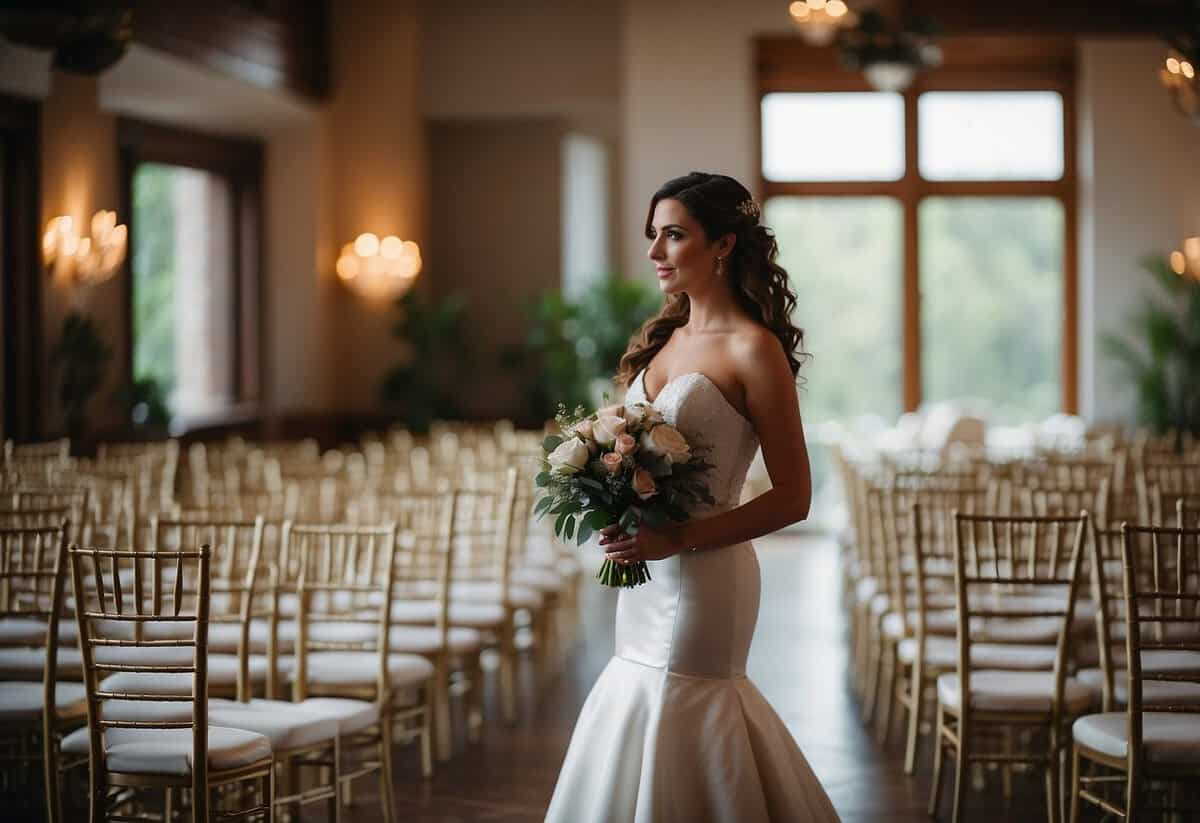
Eloping or having a private ceremony can be just as meaningful and memorable as a large celebration with family and friends. Some couples find that a small, intimate setting allows them to focus more on each other and less on the logistics of entertaining guests.
For those who worry about breaking tradition or disappointing others, remember that the most important thing is your happiness. If a guest-free wedding sounds like the best way to celebrate your love, don’t hesitate to make that choice. After all, your wedding is about you and your partner, not about meeting others’ expectations.
Understanding Wedding Guest Essentials
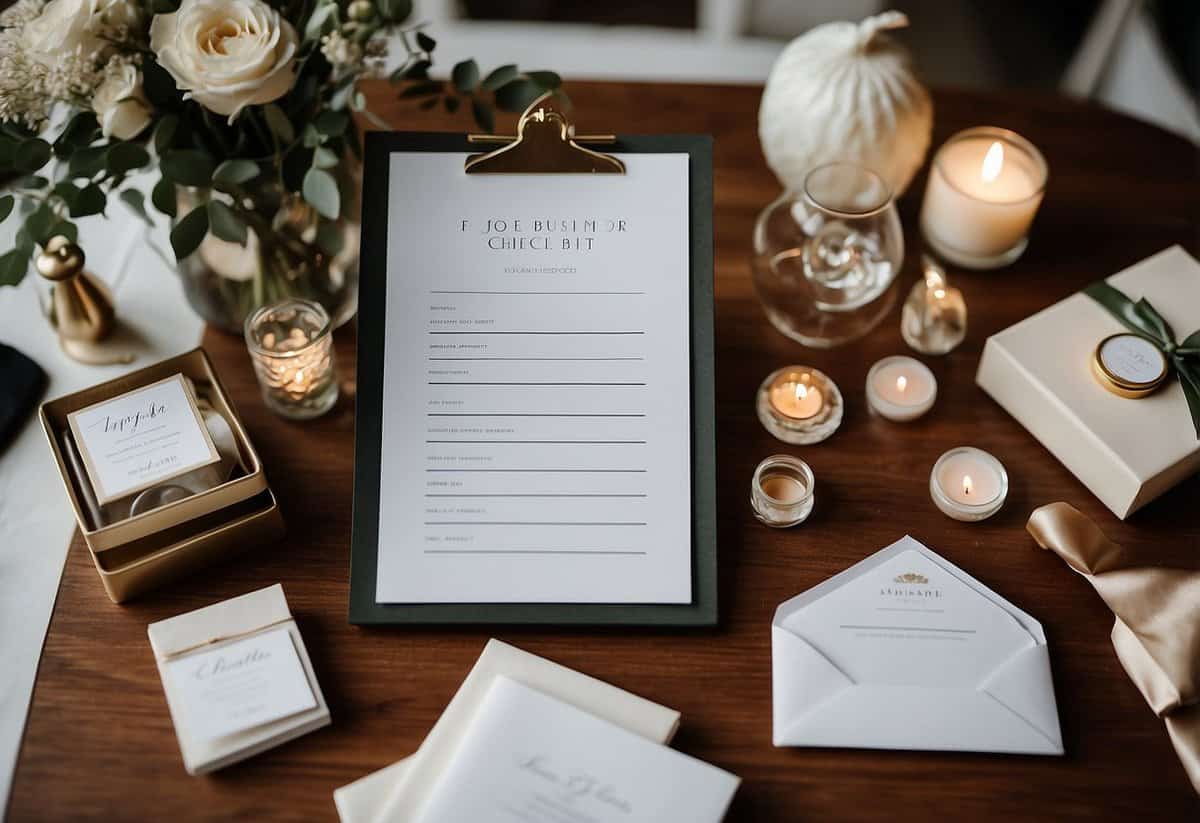
When planning your wedding, choosing who to invite involves considering the number of guests, whether to allow plus-ones, and the importance of family and friends.
Determining the Guest List Size
Figuring out the size of the guest list is one of the first steps. Start by deciding your budget. Your budget will define how many people you can afford to invite.
Next, outline your priorities. Think about who you want to share this special day with. Immediate family and close friends often come first.
Make a list of everyone you’d like to invite. Then, trim it down to fit your budget and venue size. Remember, smaller weddings can feel more intimate and personal.
Deciding on Plus-Ones
Plus-ones can complicate your guest list. Allowing every guest to bring a date can quickly increase numbers and costs. If you’re working with a tight budget, limit plus-ones to those who are in long-term relationships or married.
Clearly state your policy on the invitations. This way, there’s no confusion. Mention whether single friends can bring a guest.
Setting boundaries is essential. Balancing between welcoming guests and managing costs makes your planning smoother.
The Role of Family and Friends
Family and friends play a crucial role in your wedding. Immediate family usually gets priority on your guest list. Involvement from loved ones makes your day feel more special.
Discuss guest list decisions with close family members. They might have people they wish to invite. Collaboration helps avoid any misunderstandings.
Don’t forget your friends. Lifelong friends often provide support and joy on your big day. Including them in your wedding creates lasting memories.
Remember, it’s your day. Balance input from family and friends with your own wishes to create the perfect guest list.
Invitations & RSVPs
Planning your wedding involves thoughtful invitations and efficient RSVPs. Crafting your invitations sets the tone for your big day, while managing RSVPs ensures you have an accurate guest count.
Crafting Your Invitations
When creating your wedding invitations, start by deciding on a theme that reflects your wedding’s style. The design should include essential information like the date, time, venue, and dress code.
Personalizing your invitations makes them unique. You can include a short heartfelt message to connect with your guests.
It’s important to order your RSVP cards along with your invitations. This ensures they match in design and tone. Make sure the RSVP cards have clear instructions on how to reply, including a deadline for response.
A good idea is to include a self-addressed, stamped envelope to make it easier for your guests to reply.
Managing RSVPs and Follow-ups
Once your invitations are sent, tracking RSVPs is crucial for an accurate guest count. Using online tools can streamline this process. For instance, sites like The Knot offer customizable RSVP forms.
Send your invitations six to eight weeks before the wedding, or ten to twelve weeks for destination weddings. This timing allows guests to plan accordingly.
Keep an eye on the replies as they come in. For those who forget to respond, a polite follow-up email or call is needed. Often, people appreciate a gentle reminder.
Lastly, ensuring you have responses by the set deadline helps in finalizing details with your venue and caterer. Tools like Paperless Post can help track RSVPs easily, providing a smooth wedding planning experience.
Creating a Supportive Atmosphere
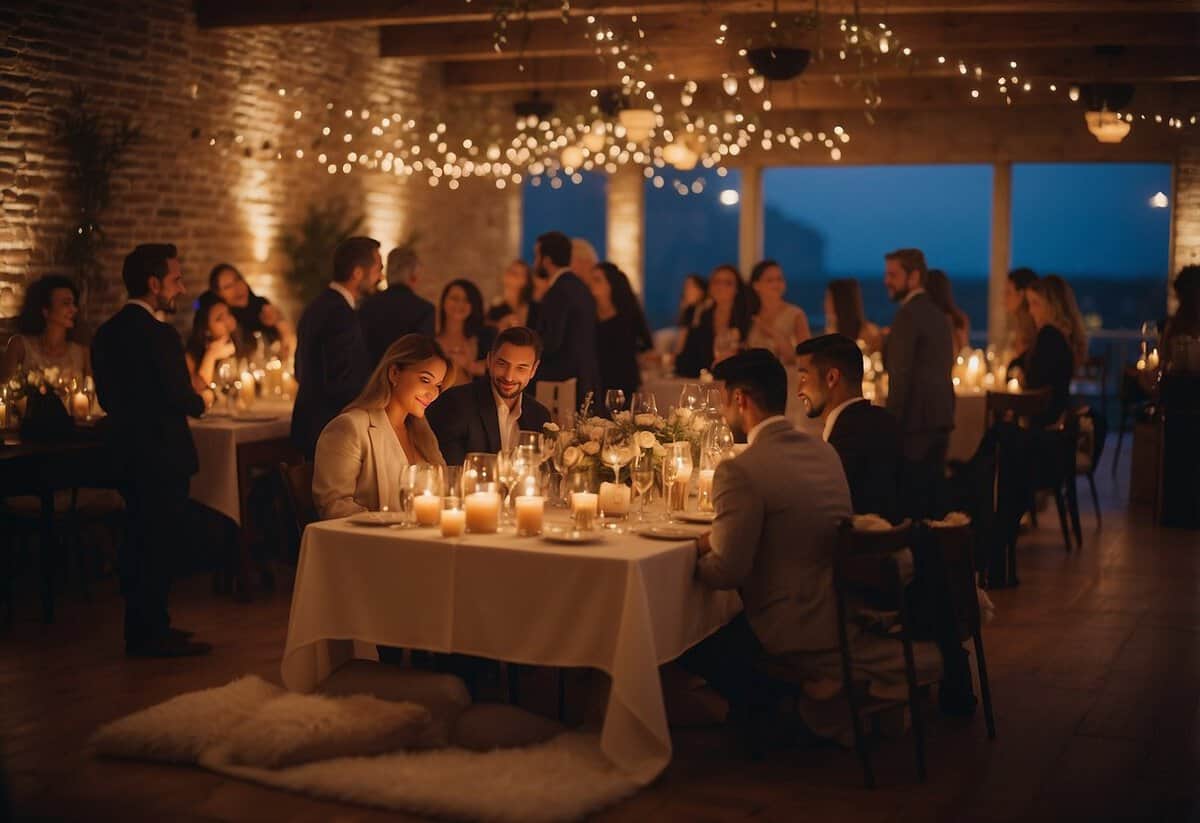
When planning your wedding, it’s essential to create a setting that offers comfort and support. Whether you opt for a smaller wedding or focus on a stress-free planning process, the key is making meaningful connections with your guests and ensuring everyone feels valued and included.
The Value of an Intimate Ceremony
A small wedding can foster a sense of intimacy and connection. Inviting fewer guests allows you to spend quality time with each person, making them feel special. This can create a warm, supportive environment where everyone feels closer to you and your partner.
At an intimate wedding, personal touches matter. Handwritten notes, personalized favors, and meaningful seating arrangements can enhance the feeling of closeness. Consider seating friends and family together based on shared interests or history to encourage bonding.
A smaller guest list also means less stress over logistics. You can focus on creating a serene and relaxed atmosphere for your ceremony and reception, making it an unforgettable experience for everyone involved.
Stress-Free Wedding Planning
Planning a wedding should be enjoyable, not overwhelming. Start by setting clear priorities. Decide what aspects of the ceremony and reception matter most to you and focus your energy on those areas.
Delegate tasks to trusted friends or hire a wedding planner. This can ease the burden and allow you to enjoy the process more. Communicate openly with your partner about your vision to ensure you are on the same page.
Keep your expectations realistic. It’s okay if not everything goes perfectly. The most important thing is to celebrate your love and commitment in a way that feels right for you. By minimizing stress, you create a more supportive and joyful atmosphere for your big day.
Logistics and Accommodations
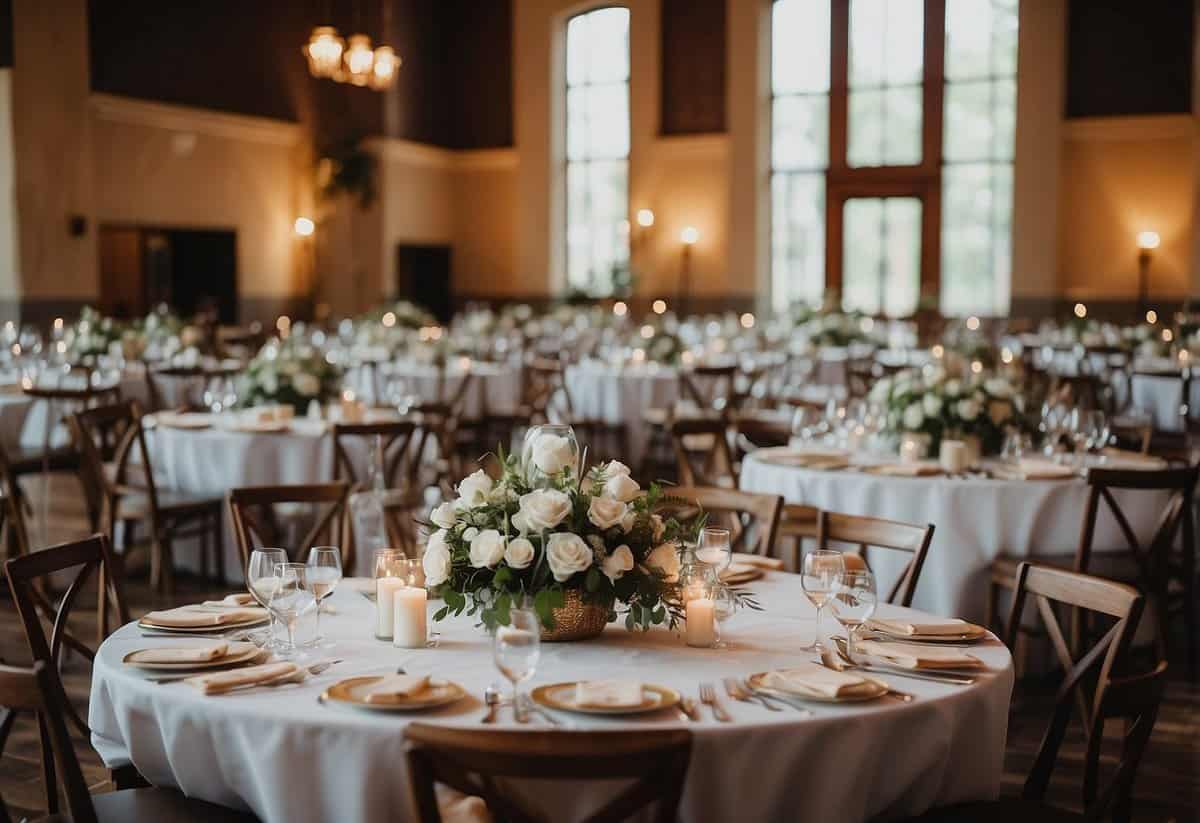
When planning a wedding, making thoughtful decisions about logistics and accommodations can create a smoother experience for you and your guests. Key aspects include selecting a location that suits your needs and efficiently coordinating travel and stays for those attending.
Choosing the Right Location
Choosing your wedding location plays a critical role in how smooth your event will be. If you have many out-of-town guests, select a location that’s easy to access. Think about places near airports or major highways.
Consider the time of year and the weather. A summer wedding may need an indoor option to avoid heat or rain. If your ceremony is in a remote or less-popular spot, your guests might need more guidance on how to get there.
Another point is to make your wedding disability-friendly. Identify any guests who might need special accommodations and ensure the venue can cater to those needs. Ensuring everyone feels comfortable and welcomed will enhance their experience.
Coordinating Guest Travel & Stay
Booking transportation for your guests is a considerate gesture, especially if many are traveling from afar. Providing shuttles or car services from the hotel to the venue can greatly reduce stress on the big day.
Arrange a hotel block for your guests. This helps them stay close together and often comes with a discount. Book these well in advance to secure the best rates and availability.
For guests with special requirements, such as dietary needs or mobility issues, provide clear guidance and communicate with vendors to ensure their needs are met. Keeping everyone informed about the schedule, including dates and times, will streamline the day and help everything go smoothly.
Personalizing Your Wedding Day
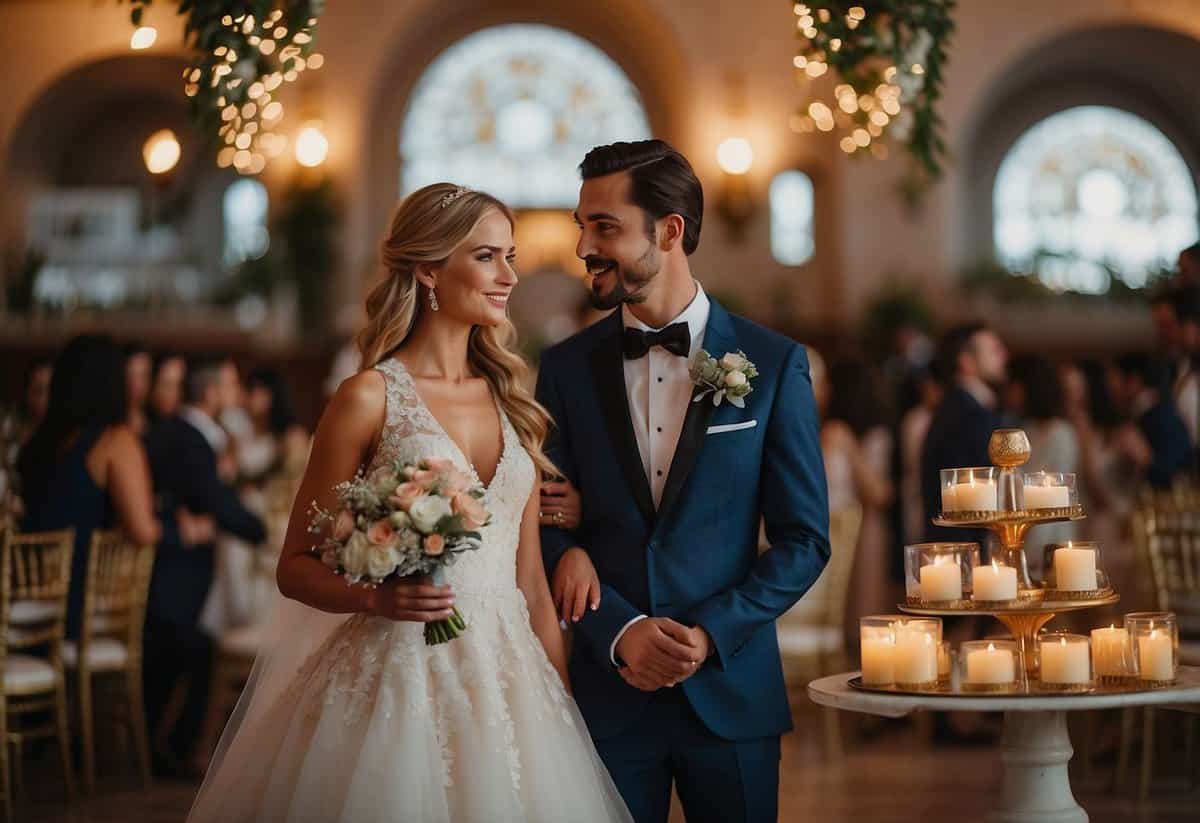
Making your wedding day truly yours involves choosing elements that reflect your personality and values. This can be achieved by integrating meaningful traditions and setting a dress code that matches the vibe you want for your celebration.
Selecting Meaningful Traditions
Choosing traditions that are deeply significant to you can make your wedding day unique. For instance, instead of a bouquet toss, you might set up a photo booth where guests can capture memories and take home keepsakes. This adds a personal touch and makes everyone feel involved.
You can also replace traditional toasts with a special performance or speech by a close friend or family member. This makes the event more personal and memorable. Consider incorporating cultural or family traditions that resonate with you, like specific rituals or customs that showcase your heritage.
Another great idea is to create a time capsule. Have your guests write thoughts and wishes that you can open on a special anniversary. This adds a sentimental value that you and your partner can cherish for years to come.
Setting the Tone with Dress Codes
The dress code of your wedding can set the entire tone of your celebration. Whether you want a formal or casual setting, guiding your guests on what to wear helps achieve that atmosphere. For instance, asking guests to wear formal attire can give your wedding a sophisticated and elegant feel.
On the other hand, a casual dress code might suit a more relaxed and intimate wedding day. You could suggest attire that fits the theme of your wedding. For example, a beach wedding could invite guests to wear light, breezy clothes, while a rustic barn wedding might call for comfortable, country-style outfits.
Including specific details in your invitations about the dress code ensures that guests know how to dress appropriately, which helps create a cohesive look and feel for the event. Providing examples or a mood board can help clarify your vision.


